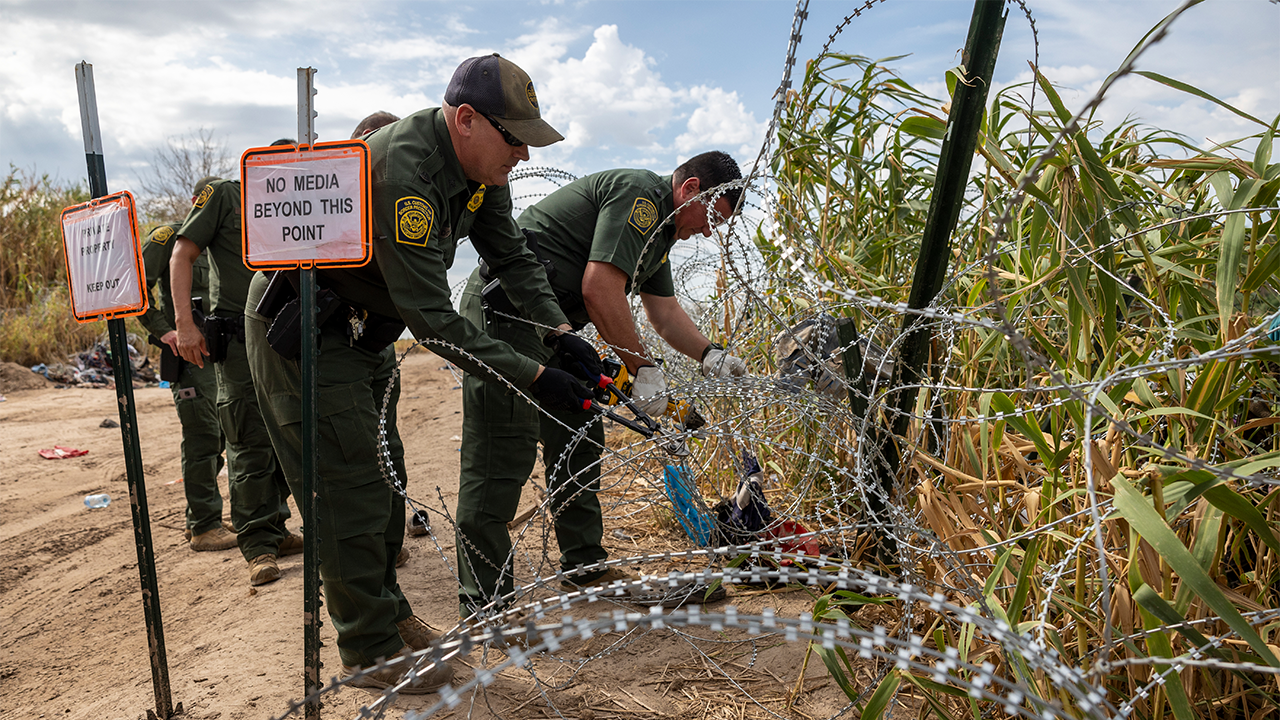Mississippi
Inability to pay a $100,000 bail kept a Mississippi man in jail for three years. After taking a plea deal, a mother worries her son won’t survive in prison

Pamela Grimsley was in a race against time to help her only child, Nathan Cox, get out of jail.
It was a year ago that the west Tennessee resident learned from a family member that he was detained at the Alcorn County Correctional Facility. Cox’s bail was set for $100,000, but Grimsley knew she didn’t have the money to bring him home to await trial.
Through letters, Cox talked about the possibility of taking a plea deal, but she hoped he would wait for trial to prove his innocence. This summer she was hopeful because Cox seemed to be doing better and was talking more with his attorney.
Then that hope faded. Last month, the 33-year-old pleaded guilty to one count of child abuse against his child and was sentenced to 40 years with 20 years suspended to avoid the possibility of a conviction by a jury and a life sentence by a judge.
Throughout his time in jail, Grimsley was most concerned about her son’s mental health. Cox shared that he was depressed. She worried he wouldn’t make it to trial, and now that he has been convicted, she fears even more that he won’t survive prison.
“His mental state will not handle prison,” Grimsley said in an interview two weeks after her son’s conviction. “Something bad’s going to happen.”

Cox, a first time offender, has been at the Alcorn County jail since 2020 but now he is in the custody of the Mississippi Department of Corrections waiting to see if he will remain there or be moved to another facility. He had been working as a car mechanic before he was arrested.
In 2021, the average number of days people were held at the Alcorn jail was around eight months, according to the most recent data compiled by the MacArthur Justice Center and the University of Mississippi School of Law.
Clay Nails, Cox’s court-appointed attorney since 2020, pointed out factors that kept his client in jail for years. Cox faced a high bond and delays in his case due to the COVID-19 pandemic’s effect on the court system, Nails said.
“This is an example of the wheels of justice not turning fast enough and not because of the fault of individuals,” the Corinth attorney said in a June interview.
Nails had hoped that a trial could take place during the summer or fall court term and ultimately the case would be resolved sometime this year.
During early court proceedings, Cox pleaded not guilty to one charge of causing bodily harm to his child.
In 2019, when he was home alone with the then-infant, Cox called for help because the child was unresponsive. The state medical examiner’s office found the injuries to be trauma from shaking or hitting, which Nails said are injuries commonly known as “shaken baby syndrome.”
For decades, subdural bleeding, retinal bleeding and brain swelling have been associated with the diagnosis. Shaken baby syndrome doesn’t always lead to death, but complications can include brain damage and related conditions.
As reported in Mississippi Today’s series “Shaky Science, Fractured Families,” scientific bases of shaken baby syndrome are coming under scrutiny. Signs of impact may have come from different causes, and associated injuries such as retinal hemorrhage have been seen in infants who died from meningitis or obstructed airways.
Nails had said he wanted to explore the case law and evolving scientific understanding of shaken baby syndrome. He secured an expert and was awaiting medical imaging of the child’s injuries for the expert to review. The goal was to explore whether there was another explanation for the child’s injuries.
Nails said the child has cognitive damage and is visually impaired from the injuries they sustained as an infant.
Cox had concerns about his ability to receive a fair trial because of the injuries, Nails said.
If there were a higher chance he would be found guilty, he wanted to know how much time he could face in prison. Nails told him, in child and elder abuse cases, juries and judges tend to convict and hand down long sentences, and Cox could potentially face life in prison.
Cox thought about it and told Nails he wanted to change his plea to guilty and take a deal.
Because of the guilty plea, Nails was not able to challenge shaken baby syndrome as the cause of the child’s injuries or raise doubts about Cox as a suspect.
The district attorney’s office argued the person responsible for hurting the child is Cox since there were no witnesses to anyone inflicting the trauma, while Nails said he wanted to consider the child’s mother as the one responsible.
Cox believed himself to be the father of the child, but Nails said a paternity test has not been given to confirm that. Grimsley has questioned whether her son is the child’s father.
“He was just looking for love in all the wrong places,” Grimsley said about Cox’s relationship with the child’s mother, who she believes contributed to Cox’s detention.
Plea agreements are made by prosecutors and are meant to encourage a guilty plea, and they can come with reduced charges or lighter sentences. A guilty plea is recorded publicly, but the negotiation often happens outside of the courtroom.
First District Attorney John Weddle said plea offers are made on a majority of his office’s cases, and it’s up to the defendant whether to accept or reject them.
In Cox’s case, the prosecution was under the impression that he wanted to go to trial until Cox expressed through his attorney that he was interested in changing his plea.
To come up with a plea officer, Weddle said multiple factors are considered, including the severity of the crime, the minimum and maximum sentences of a crime, evidence and how a jury would react.
“Normally on plea negotiations we try to do something close to what a judge would do,” he said.
A 2023 report by the American Bar Association’s Plea Bargain Task Force found evidence that there can be a “powerfully coercive impact” on a defendant’s choice to take a plea deal rather than go to trial, which can result in a longer sentence.
Grimsely said the guilty plea doesn’t seem fair, especially because her son has maintained innocence. In his most recent letter before his conviction, Cox said he would be going to prison for something he didn’t do.
She said he is safe at the Alcorn County jail, but she worries what may happen to him in prison, especially if other inmates learn he was convicted of child abuse.
Although Cox received a 40-year sentence, he may only serve a fraction of that time. Under Senate Bill 2795 passed in 2021, people sentenced for violent offenses are eligible for parole after having served half of their sentence.
With 20 years suspended from his sentence, that would mean Cox could have 10 years to serve in prison. He already has a little over three years served from jail that would bring the sentence down to around six and a half years, Nails said. The potential for time off due to good behavior could reduce Cox’s sentence more, his attorney said.
Cliff Johnson is director of the MacArthur Justice Center said people can remain in jail for years before trial in Mississippi due to systemic problems.
District attorneys have control over the indictment process, and there is no time limit on how long someone can spend in jail before indictment, Johnson said. Judges also play a role in getting a case to trial, he said, because they can determine whether someone is being held too long pretrial.
“If district attorneys aren’t vigilant moving cases to trial and circuit judges don’t take seriously the presumption of innocence, the system doesn’t work and people wind up serving lengthy sentences without ever being found guilty by a jury,” Johnson said.
The American Bar Association Plea Bargain Task Force found some people plead guilty for reasons that don’t have to do with factual or legal guilt. They may change their plea so they don’t have to remain jailed and unable to work or take care of their children.
Three years spent in jail pretrial isn’t extraordinary considering that there have been people who have spent longer.

In 2021 Mississippi jail data shows one of the longest jail stays across the entire state was for Duane Lake, who spent six years in the Coahoma County jail before a jury acquitted him of capital murder in 2022.
Grimsley said songwriting was a form of therapy for Cox when he was in jail. He has a gift for playing the guitar, singing and writing songs – some of which he sent to his mother.
Once Cox is moved to a prison facility, Grimsely said she plans to get her car repaired and visit him.
Since learning about his conviction, she’s felt sick and doesn’t eat and sleep much. Cox has said he is okay, but Grimsley thinks he may be saying that for her sake.
She can’t imagine that he’s handling it well.

Mississippi
Minor earthquake recorded in Mississippi on Thanksgiving

MADISON COUNTY, Miss. (WJTV) – A minor earthquake was recorded in Mississippi early Thanksgiving morning.
According to the United States Geological Survey (USGS), the 2.5-magnitude earthquake occurred southeast of Canton near the Ross Barnett Reservoir around 1:48 a.m. on Thursday, November 28.
Officials with the Michigan Technological University said earthquakes below 2.5-magnitude are “generally not felt.” So far, there are no reports of any damage in Madison County.
The last earthquake that occurred in Madison County was a 2.8-magnitude earthquake in 2019.
Mississippi
Thanksgiving on Mississippi Public Broadcasting Think Radio, set to air on Thursday, November 28th

MISSISSIPPI (KTVE/KARD) — For Thanksgiving, on Thursday, November 28, 2024, the Mississippi Public Broadcasting Radio will air a special programming.
Photo courtesy of Mississippi Public Broadcasting
According to officials, “Turkey Confidential” and “Feasting with the Great American Songbook: An Afterglow Thanksgiving Special” will run from 9 a.m. to 1 p.m. Francis Lam will be taking calls and help those in need of Thanksgiving cooking tips for the biggest cooking day of the year.
According to officals, “Feasting with the Great American Songbook: An Afterglow Thanksgiving Special” will explore classic jazz and popular songs about food by singers like Louis Armstrong, Louis Jordan, and Fats Waller, perfect for listening while sitting at the table.
Mississippi
Southeast Mississippi Christmas Parades 2024 | WKRG.com

MISSISSIPPI (WKRG) — It’s beginning to look a lot like Christmas on the Gulf Coast and that means Santa Claus will be heading to town for multiple parades around the area.
WKRG has compiled a list of Christmas parades coming to Southeast Mississippi.
Christmas on the Water — Biloxi
- Dec. 7
- 6 p.m.
- Begins at Biloxi Lighthouse and will go past the Golden Nugget
Lucedale Christmas Parade
-

 Science1 week ago
Science1 week agoTrump nominates Dr. Oz to head Medicare and Medicaid and help take on 'illness industrial complex'
-
/cdn.vox-cdn.com/uploads/chorus_asset/file/25739950/247386_Elon_Musk_Open_AI_CVirginia.jpg)
/cdn.vox-cdn.com/uploads/chorus_asset/file/25739950/247386_Elon_Musk_Open_AI_CVirginia.jpg) Technology1 week ago
Technology1 week agoInside Elon Musk’s messy breakup with OpenAI
-

 Health5 days ago
Health5 days agoHoliday gatherings can lead to stress eating: Try these 5 tips to control it
-

 Health3 days ago
Health3 days agoCheekyMD Offers Needle-Free GLP-1s | Woman's World
-

 Science2 days ago
Science2 days agoDespite warnings from bird flu experts, it's business as usual in California dairy country
-

 Technology1 day ago
Technology1 day agoLost access? Here’s how to reclaim your Facebook account
-

 Science1 week ago
Science1 week agoAlameda County child believed to be latest case of bird flu; source unknown
-

 Sports1 week ago
Sports1 week agoBehind Comcast's big TV deal: a bleak picture for once mighty cable industry





.jpeg.ca95269fce1db9861b700d87a34be4c6.jpeg)









